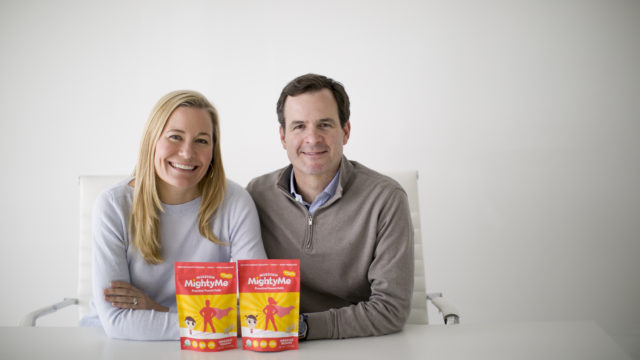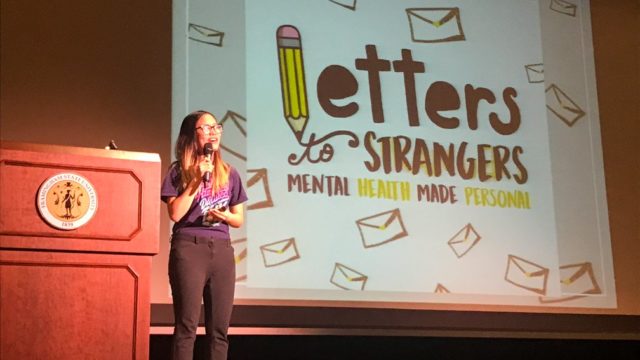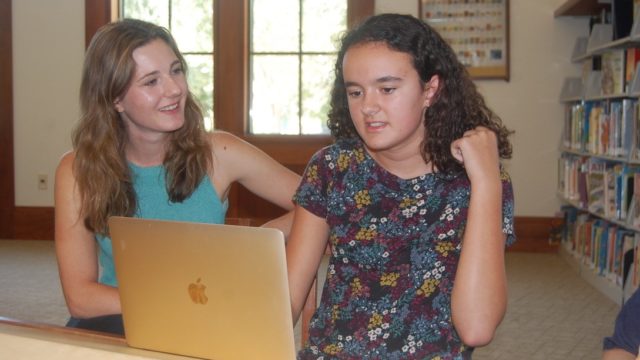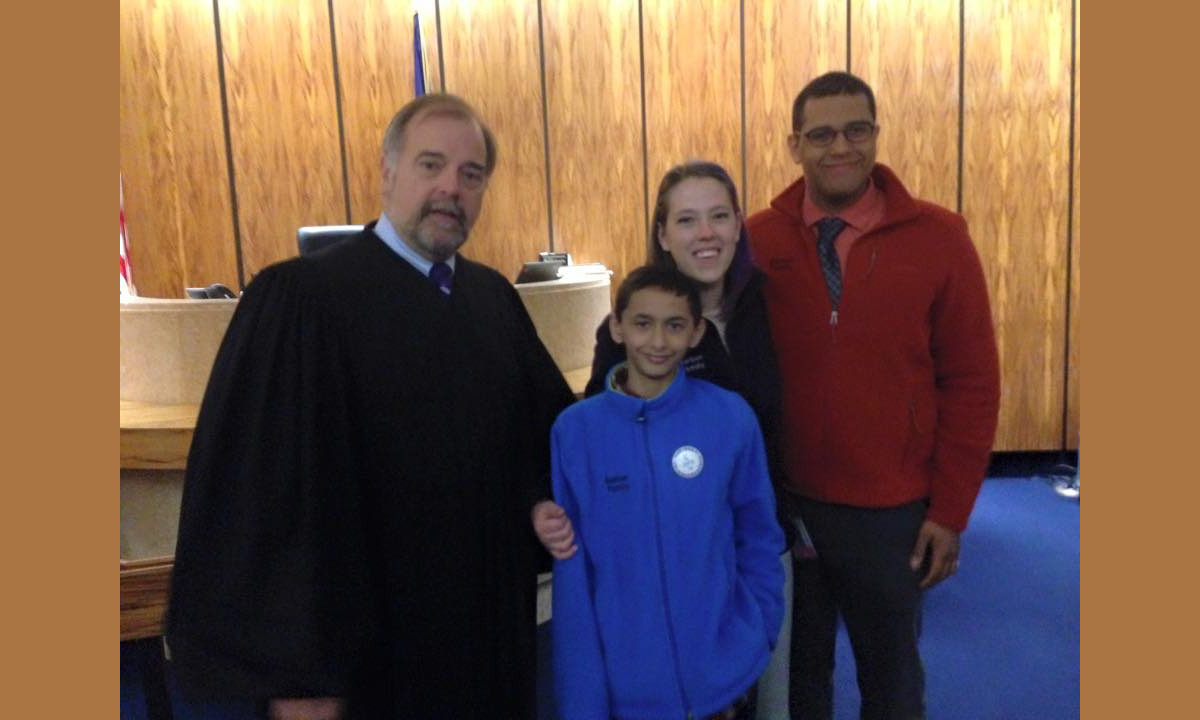
The Science of Caring
Researcher and Foster Mom, Annika Barber is Improving our Health and Growing our Hearts
Annika Barber is a scientist. She’s always wondered how life works and has been studying in labs since she was 12 years old.
Now 31, she’s researching neuropeptides and how they tell fruit flies whether they should eat, sleep, or choose other survival behaviors. Her ultimate goal is to gain an understanding of how our decision making is influenced by our environment. But the 2005 Coca-Cola Scholar’s love of science goes beyond the lab.
“I’m driven by curiosity and caring. I want to answer questions that will improve human health,” she said.
In addition to her scientific research, Annika is improving the lives of humans in other ways – specifically two humans – first as a foster mom, and then as an adoptive mom.
She shares what inspired her to open her home, her heart, and how she’s advocating for improvements to the foster care system.
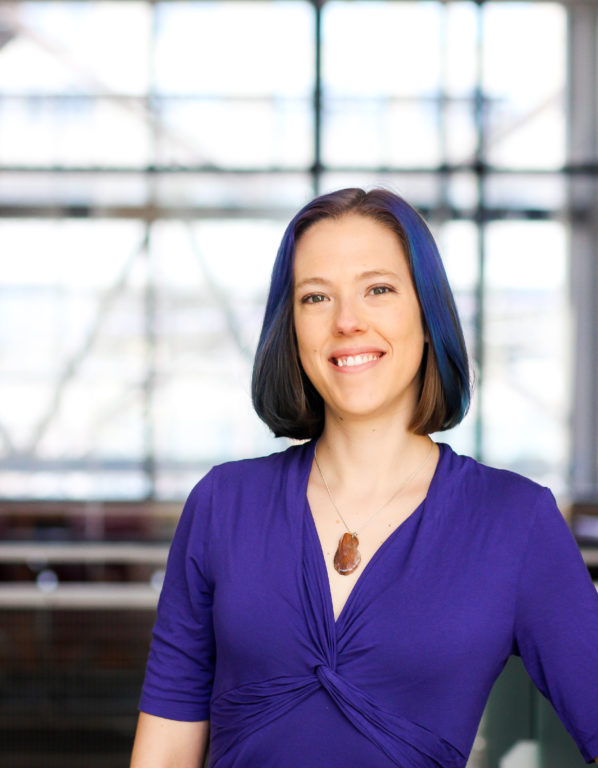
What inspired you to foster a child?
While science (hopefully) will let me make an impact on a large scale, I also think caring starts with the people closest to you – which is family. My husband and I felt like we had so much – a house, jobs, a caring community – and wanted to share that with kids who really needed that scaffold of support around them.
Foster care starts with a goal of reunification – getting kids back to safe adults in their family. But some kids remain in care for a long time, and aren’t able to go home. Their parental rights are terminated and they become “waiting children” – waiting for someone to step up and take them into a family. Most waiting children are middle- to high-school aged, and have had a difficult road into and through foster care.
We signed up for 30 hours of training, and began the process of matching with a waiting child. After about 5 months, we matched with our now-son Jaiell.
What was their life like before they came to live with you?
Both our kids were waiting children when they came to us, so they’d lived in a series of foster and/or group homes before coming to us. Some were great places, some were not great places. Ultimately, they both just really missed their family.
Do you remember the first time you met them? How did you feel?
We first met Jaiell at a bowling alley with his caseworker. He was 10 years old, and he was SO TINY! He didn’t know he had matched with us yet – the caseworkers wanted a chance to observe interactions, and he was very shy. After that visit, we had several more supervised visits and began taking him for overnights.
We met our daughter Alizé because she’s our son’s sister and he had biweekly sibling visits with her while he was in foster care with us. When we first met her, she was in another foster home, and we’d take the two kids out for outings. We didn’t know at the time that a few years down the road she’d be living with us! Her permanent legal custodianship didn’t work out, and when we found out she needed a placement, it seemed obvious that our son’s family is our family, so of course we’d make it work.
What are your lives like now?
Jaiell has autism, and has had a very difficult time working through some of his challenges. Right now, he’s in a boarding school for boys with developmental delays and violent behavior, which was a tough choice to make, but he’s thriving there. We get to visit him twice a month and talk every day and he’s working toward home visits and an eventual transition back to living at home. He’s really working hard on some of his challenges. It’s impressive to see a little kid taking on such big demons.
Alizé graduated high school in 2018! She’s the first in her family to finish high school, and we couldn’t be more proud. She is fiercely independent and was ready to be on her own as soon as she could, though she comes home for holidays and texts whenever she needs stuff. It’s so important for aging-out teens in foster care to have adults to turn to!
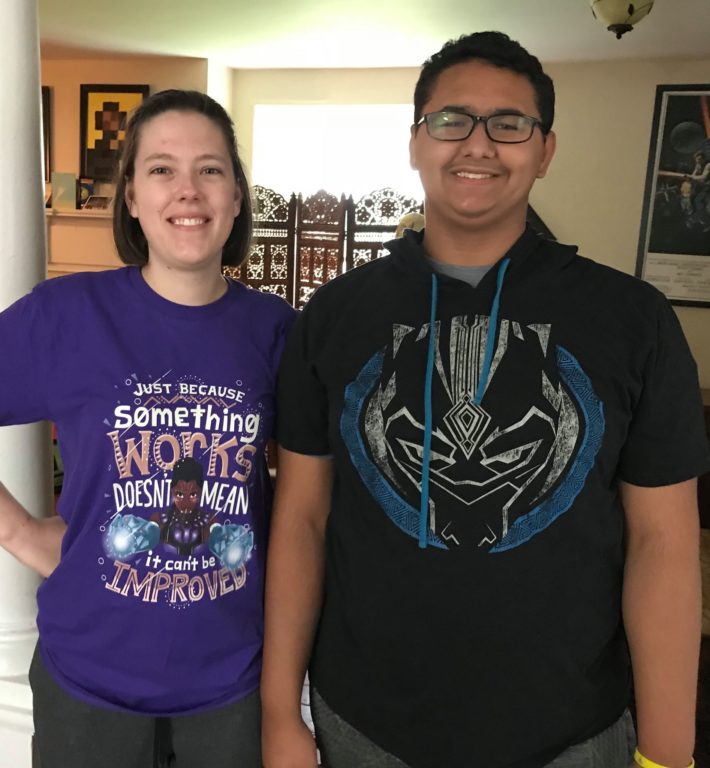
What has been the biggest challenge you faced?
You never know what you don’t know! We did so much to try to educate ourselves about adopting older children and parenting children who have experienced trauma. But you really can’t know it until you live it. It can be hard not to take some things the kids do or say personally.
It’s hard to navigate our terrible mental healthcare system. It’s hard to hear some of the difficult things in their lives and just be there and absorb it for them, because I can’t travel back in time and fix it. All we can do is move forward together as a family.
Is there a particular moment or memory that stands out for you?
We told our kids up front to call us whatever they’re most comfortable with. They mostly use our first names, though they’ll refer to us as their parents to others. When my son was little he said, “I can’t call you mom, cuz you’re not my real mom. But I love you. You’re my real fake mom!” It was so cute.
How has this changed you?
Honestly, it’s made me angry. Angry that our kids’ mom didn’t get the support she needed when she needed it, which is why the kids came into care. Angry at a broken foster care system that kept our kids in limbo for years. Angry at how hard it is to get high quality mental healthcare for kids with complex trauma.
Right now, we’re still wading through getting our kids everything they need to succeed. But as time allows, I call and write legislators in my state to advocate for changes to foster care that will better support families and keep kids out of care.
What is your outlook for the future?
I’m so hopeful for my kids. They are amazing, sweet, funny, and open to a world that has hurt them. I can’t wait to see what they do!
Foster care as a whole is a different story. As my kids become older and more independent, I hope to increase my advocacy work in improving services that keep kids in their families of origin and better scaffold youth aging out of care.
What does being a Coca-Cola Scholar mean to you?
Being a Coca-Cola Scholar is being a community member. I love seeing how Scholars are not just brilliant and talented, but they care about others. They care about reaching out and connecting with people and really digging into how to solve the problems they find in their communities. My involvement with the Coca-Cola Scholars Program and other life experiences motivated me to pursue becoming a foster parent.
And of course they care about each other! I love networking with other Scholars on Facebook, seeing the amazing things people are doing, and seeing how quick everyone is to offer support to one another.
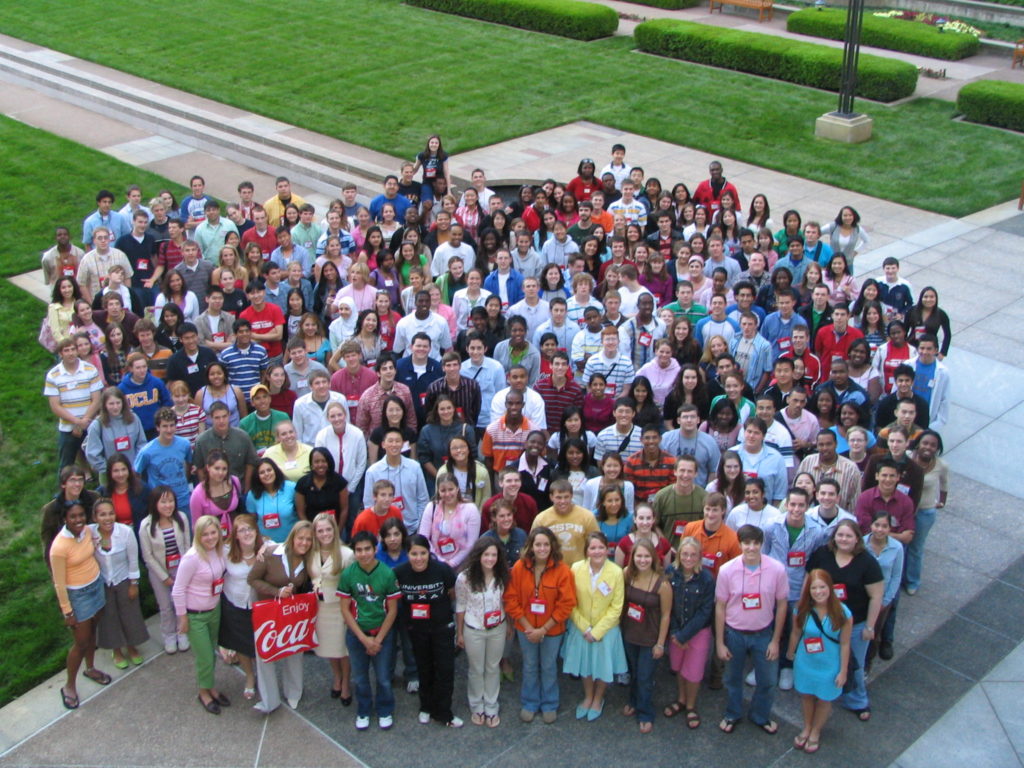
What makes the Coca-Cola Scholars program unique?
It’s an actual family! Some organizations say “we’re a family” and it’s just a phrase. Coca-Cola Scholars really are family. People who’ve never met offer support, connections, even a place on their couch because we know that we’re family and can’t wait to connect!
Annika Barber, a 2005 Coca-Cola Scholar, got her Bachelor of Science at Bryn Athyn College, where she worked in labs at Fox Chase Cancer Center and Thomas Jefferson University investigating mechanisms of DNA double-strand break repair. She did her doctoral work at Thomas Jefferson University with Manuel Covarrubias, mapping binding sites for inhaled anesthetics in voltage gated ion channels and developing Markov models of how anesthetics impair channel gating. Annika moved from single cell patch clamp electrophysiology to Drosophila behavior when she started her Postdoctoral Fellowship with Amita Sehgal at the University of Pennsylvania. In her postdoc, Annika investigated how a circadian output region regulates sleep, feeding and metabolic function. This piqued her interest in understanding the complex interplay of neuropeptides in Drosophila behavioral circuitry. Annika will start her lab at Rutgers in January 2020!
The Coca-Cola Scholars Foundation celebrates and empowers visionary leaders who are refreshing the world. With its 31st class of Coca-Cola Scholars, the Foundation has provided more than $69 million in scholarships to over 6,150 program alumni who together have become a powerful force for positive change.


